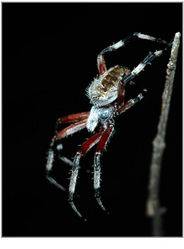TheGoodStuff
Member
Sammet - I love your cat 

d70 here manSammet said:This thread is full of Canon fan boys, where are all the Nikon users at?
(just some info - those photos above where all shot at 1/15 ISO 100 if I remember correctly, apart from the car/sunset)
loflogro - had any experience with the new nikon lenses with VR? I was thinking of getting a 55-200mm AF-S DX VR for christmas and was wondering if the VR is any good?



 This thread is great
This thread is great 


